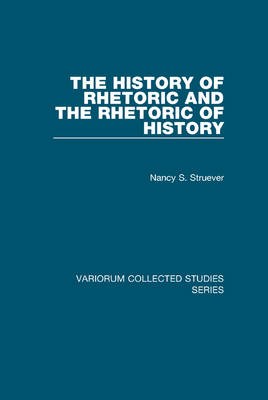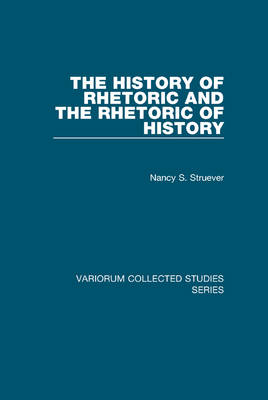
Door een staking bij bpost kan je online bestelling op dit moment iets langer onderweg zijn dan voorzien. Dringend iets nodig? Onze winkels ontvangen jou met open armen!
- Afhalen na 1 uur in een winkel met voorraad
- Gratis thuislevering in België vanaf € 30
- Ruim aanbod met 7 miljoen producten
Door een staking bij bpost kan je online bestelling op dit moment iets langer onderweg zijn dan voorzien. Dringend iets nodig? Onze winkels ontvangen jou met open armen!
- Afhalen na 1 uur in een winkel met voorraad
- Gratis thuislevering in België vanaf € 30
- Ruim aanbod met 7 miljoen producten
Zoeken
Omschrijving
In the articles collected here Nancy Struever explores the basic assumption that rhetoric is not simply a bag of persuasive tricks, but functions, necessarily, as a mode of inquiry investigating not simply the mechanics of production and reception of discourse, but the psychological factors of reason and passion engaged by the assertion, modification, and contest of beliefs and dispositions of the civil communities. The first section looks both at contemporary historians employing rhetorical constructs and tactics and at contemporary accounts of the employment of rhetorical pedagogical material and theoretical texts in medieval and Renaissance cultural practices. The second set of articles considers change and continuity in the rhetorical exploitation's of genre forms in cultural programs, focuses on the strong reorientation of Classical forms of moral inquiry, on the ingenious use of the proverb, of etymology, of the exemplum, as well as on the changes in strategies in the theater, the novel, and art criticism. The final section deals with the strong historical interconnections of rhetoric with other disciplines: the motives and investigative tactics of medicine and rhetoric in the Renaissance and Early Modernity, and the shared interests and interwoven careers of rhetoric and law.
Specificaties
Betrokkenen
- Auteur(s):
- Uitgeverij:
Inhoud
- Aantal bladzijden:
- 358
- Taal:
- Engels
- Reeks:
Eigenschappen
- Productcode (EAN):
- 9781138375376
- Verschijningsdatum:
- 3/01/2019
- Uitvoering:
- Paperback
- Formaat:
- Trade paperback (VS)
- Afmetingen:
- 149 mm x 224 mm
- Gewicht:
- 666 g

Alleen bij Standaard Boekhandel
+ 132 punten op je klantenkaart van Standaard Boekhandel
Beoordelingen
We publiceren alleen reviews die voldoen aan de voorwaarden voor reviews. Bekijk onze voorwaarden voor reviews.











